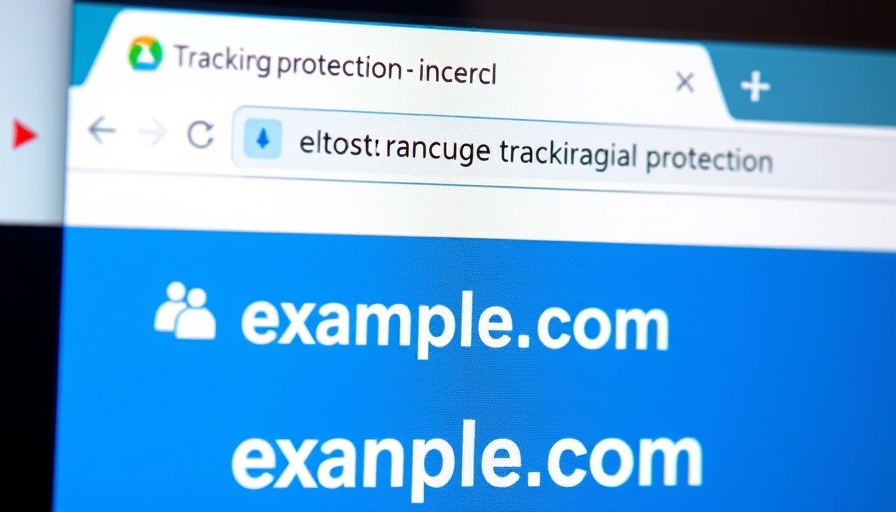
Understanding Google's Cookie Phase-Out Journey
In 2020, Google signaled a major shift in digital marketing with its announcement to phase out third-party cookies in Chrome. The initial plan aimed to create a more privacy-centric online environment by utilizing Federated Learning of Cohorts (FLoC), which was designed to anonymize user data while still facilitating targeted advertising. However, this ambitious goal quickly unraveled amidst pushback from advertisers and regulatory bodies concerned about the implications of such changes on tracking and ad performance.
The Implications for Businesses and Advertisers
The decision to abandon the cookie phase-out altogether means that business owners can continue tracking user behavior on their websites without the major disruption they had anticipated. This news will undoubtedly provide relief to a myriad of advertisers who rely heavily on cookies for maintaining effective ad campaigns. It potently illustrates the balancing act between privacy concerns and the necessity of data-driven marketing strategies that businesses have to navigate.
Regulatory Reactions and Industry Perspectives
Privacy advocates, however, are less than pleased with Google's decision. The absence of a definitive plan to phase out tracking that doesn’t compromise user privacy raises alarms about the future of data protection online. The conversation around tech companies' accountability in safeguarding personal information remains critical, and this reversal from Google can ignite debates on regulatory measures versus corporate freedom in handling user data.
Lessons for Business Owners in an Evolving Landscape
Business owners are encouraged to reflect deeply on this development. The lack of a cookie phase-out allows for an easier continuation of existing marketing practices but raises questions about the long-term sustainability of such strategies. As online privacy laws evolve and consumers become more conscious about their data, businesses should prepare for an eventual landscape where reliance on cookies may not be viable. This could be a crucial moment for reevaluating customer engagement techniques that respect user privacy while achieving advertising goals.
Alternatives on the Horizon?
Although Google hasn't presented an immediate alternative, the digital marketing landscape is replete with innovative solutions. Marketers can explore contextual targeting and first-party data strategies, which rely less on cookies, as effective ways to adapt to future regulations. Continuing education about technological advancements, alongside embracing consumer transparency, is essential.
Broadening the Vision: The Future of Digital Advertising
Looking ahead, the industry might witness a rise in marketing automation tools that empower businesses to optimize their strategies without traditional tracking methods. Tools such as CRM systems, AI-driven analytics, and integrated marketing platforms are likely to become integral for advertisers navigating a more privacy-conscious future. As consumers demand more control over their data, businesses that prioritize transparency and ethical data use will likely emerge as leaders in the market.
Conclusion: Navigating Change
Google's decision signals an important moment for businesses navigating the complexities of digital advertising. While it may appear that they can continue tracking user data as before, a more nuanced approach that considers privacy concerns is essential for long-term success. This situation serves as a reminder that change is constant in the digital landscape, and a proactive approach to evolving marketing practices is crucial.
As we focus on the implications of Google's decision, consider how your business can thrive in this dynamic environment. Evaluate your current strategies, explore innovative alternatives, and stay informed about changes in the digital landscape that may affect your marketing approach.
 Add Row
Add Row  Add
Add 




Write A Comment